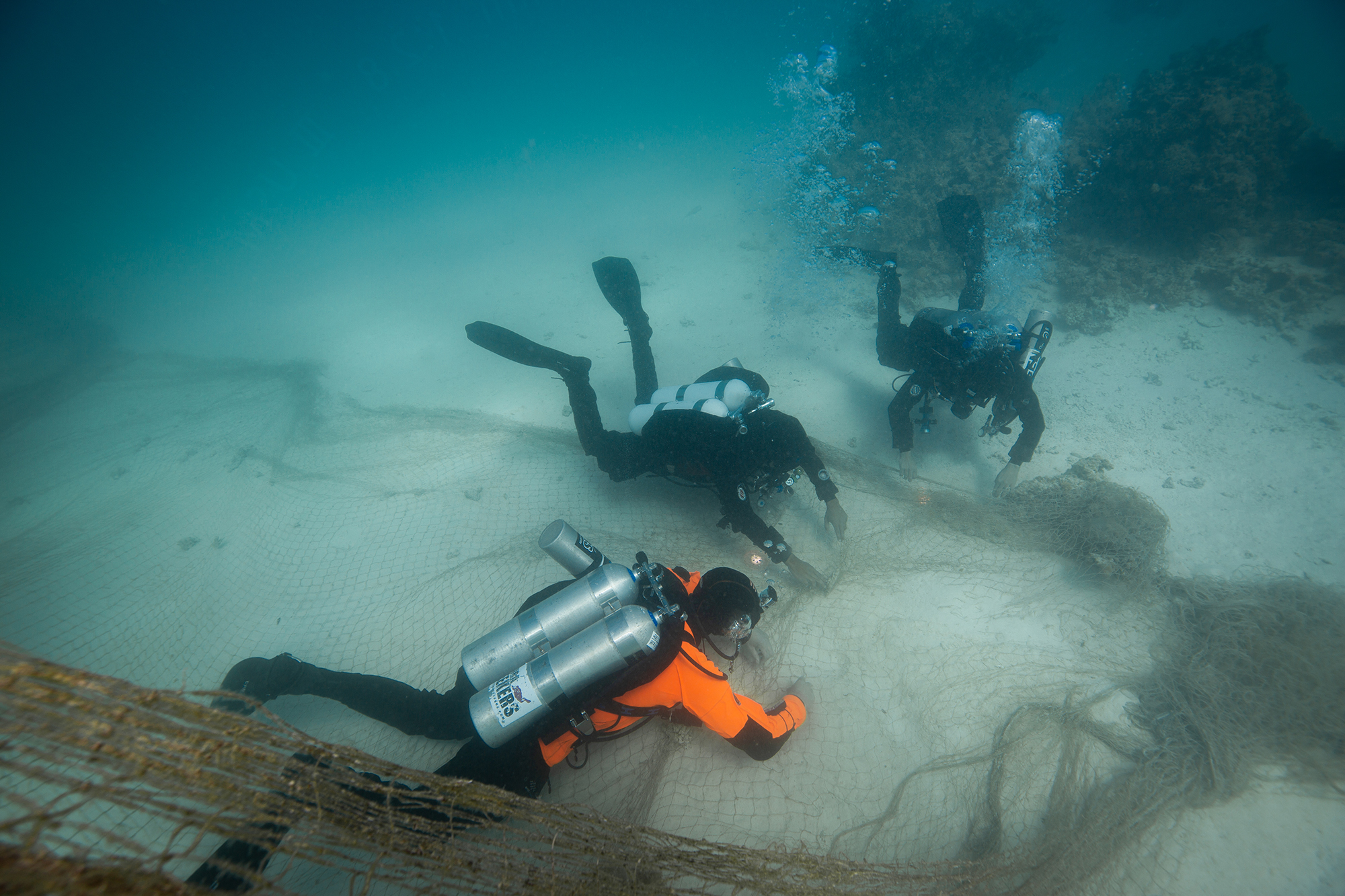This Earth Day (April 22nd), Healthy Seas is proud to announce it expands its geographic focus and launches activities in the Red Sea.
Healthy Seas was founded in 2013 and began its marine conservation work in the Netherlands. Today, the organisation operates in 7 countries in Europe, New Zealand and by establishing collaboration with Ghost Diving Egypt, has now expanded to a 3rd continent.
Due to its unique geological formation, the Red Sea is a biodiversity hotspot. Its extensive reef system is home to some 1500 species of coral and fish with an estimated 20% endemic to the region, meaning they are only found in the Red Sea. These coral reefs are some of the most productive on the planet; but perhaps most impressive is their resiliency to rising ocean temperatures.
In the Northern Red Sea – in particular the Gulf of Aqaba – no mass bleaching events have occurred and these corals are considered a refuge from climate change and ocean acidification. More research is needed to understand why these corals have yet to be impacted by warming waters but scientists believe the Red Sea’s reefs hold the key to saving reef systems in other parts of the world that are unable to adapt to rising ocean temperatures.
This is why it’s imperative to preserve these corals and protect them from other significant threats such as wastewater runoff, coastal development, plastic pollution and destructive fishing practices. Detailed data collected over the past year from frequent underwater cleanups in Dahab, a coastal town lying on the Gulf of Aqaba, shows us the largest sources of marine litter in the region are cigarette filters, single-use plastics, and cloth fabrics.
When it comes to ghost fishing gear, nets and lines are the most common found in Dahab’s waters and are problematic for marine species as they can become entangled and trapped, limiting their chances for survival.
“We are excited about our collaboration with the volunteer divers of Ghost Diving Egypt to help rid the Red Sea of ghost gear and to continue with general cleanups which serves to not only clean our seas – but to raise public awareness on the growing marine litter problem and to encourage change,” says Veronika Mikos, Director of Healthy Seas. “The theme of this year’s Earth Day is ‘Together, we can Restore Our Earth’ and we are very proud to be able to turn these words into action and fulfill our conservation objectives.”
Healthy Seas works to tackle the ghost fishing phenomenon which is responsible for the needless death of marine animals. Through cleanups with volunteer divers and by working with stakeholders of the fishing sector toward marine litter prevention, Healthy Seas collects waste nets and ensures they become a valuable resource. Nylon fishing nets are regenerated together with other nylon waste by Aquafil into ECONYL® yarn while the other types of plastics are also reused or recycled.
Notes to Editors:
About Healthy Seas
The mission of ‘Healthy Seas, a Journey from Waste to Wear’ initiative is to remove waste from the seas, in particular fishing nets, for the purpose of creating healthier seas and recycling marine litter into textile products. The recovered fishing nets will be transformed and regenerated by Aquafil into ECONYL® yarn, a high-quality raw material used to create new products, such as socks, swimwear, sportswear or carpets. Since its founding in 2013, Healthy Seas has collected over 585 tons of fishing nets with the help of volunteer divers and fishermen.
Contact:
Jenny Ioannou
Communications Manager
[email protected]
+30 69 74992349
Press Kit
Photos available here



